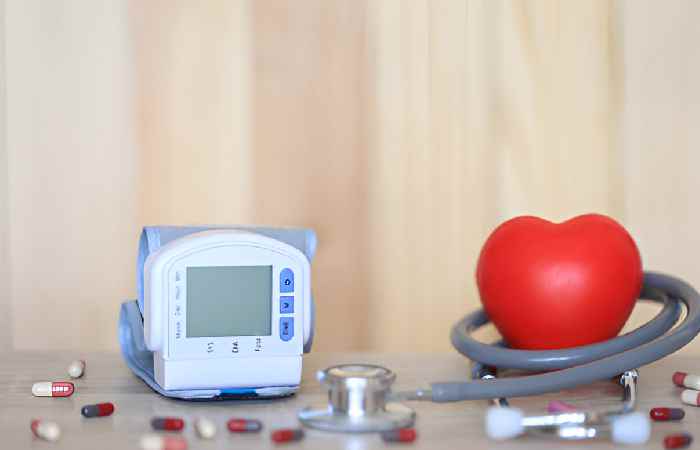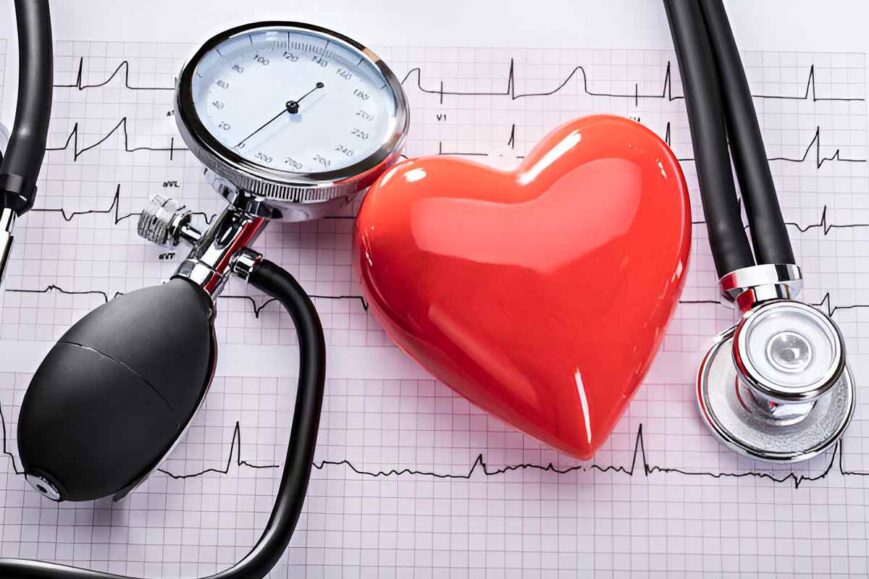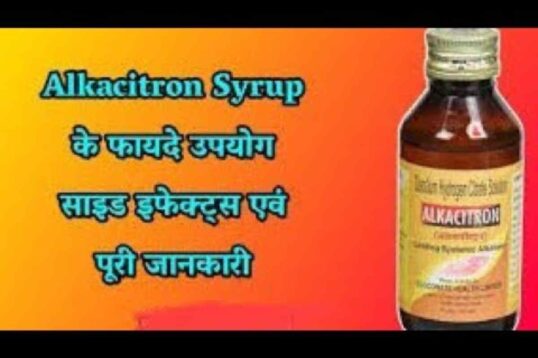How are Hypertension, Heart Disease, and Stroke Related? – Hypertension is a condition in which the blood pressure in the arteries is too high, also known as high blood pressure. If ignored, it can lead to serious health problems such as stroke and heart disease over time.
Heart disease is a disease that affects the heart, while stroke is a disease that affects the brain as a result of blood not reaching the brain. Similarly, stroke can lead to heart disease.
Read more about high blood pressure and its relationship to heart disease and stroke.
How hypertension, heart disease, and stroke are related?

Hypertension reduces blood flow to the heart and causes heart disease. High blood pressure can also damage the blood vessels that supply blood to the brain. Stress can reduce blood flow to the brain, causing a stroke.
Heart disease and stroke are related, too.
Heart disease can affect blood flow to the brain, making it difficult for your heart to pump blood properly.
High blood pressure can damage the heart and arteries leading to it. It also makes your arteries more susceptible to plaque. In turn, your arteries will narrow during the process of atherosclerosis. Therefore, in response to increased stress, the heart muscle thickens. This reduces the flexibility of your heart. It can cause heart disease, which can cause the following problems:
- Coronary artery disease: Coronary artery disease is plaque buildup in the arteries. This is the most common type of heart disease.
- Heart attack: A heart attack occurs when damaged blood vessels become blocked and prevent blood from reaching the heart.
- Heart failure: When your heart thickens due to high blood pressure, it will weaken. Eventually, your mind will not work properly. The reason for this is again the danger of high blood pressure in the arteries.
High blood pressure can cause two types of strokes
Ischemic Stroke
High blood pressure can damage the blood vessels that supply blood to the brain. This narrows the blood vessels, leading to blockages. In such a case, blood flow to the brain can be cut off and cause an ischemic stroke. Plaque builds up in the arteries and blocks blood flow to the brain.
Hemorrhagic Stroke
The strain of high blood pressure weakens the artery walls. This can make it harder for arteries to handle the pressure. Eventually, a weakened artery near or in your brain may burst, causing sudden bleeding. This is called a hemorrhagic stroke.
What constitutes high blood pressure?
A blood pressure reading consists of two numbers.
The top number is the systolic blood pressure. It refers to the force in your arteries when your heart beats and pushes blood. The bottom number is the diastolic blood pressure. It refers to the pressure against your arteries in between heartbeats.
Blood pressure is measured in millimeters of mercury (mm Hg).
Systolic blood pressure: Normal: less than 120
Elevated (prehypertension): 120–129
Stage 1 hypertension: 130–139
Stage 2 hypertension: 140 or higher
Hypertension crisis: higher than 180
Diastolic blood pressure: Normal: less than 80
Elevated (prehypertension): less than 80
Stage 1 hypertension: 80-89
Stage 2 hypertension: 90 or higher
Hypertension crisis: higher than 120
Symptoms of High Blood Pressure
High blood pressure often has no obvious symptoms. This is a silent situation. Generally speaking, symptoms of high blood pressure only appear when it is severe. However, this will take years to complete.
How to lower blood pressure to decrease the risk of stroke
Treatment includes lifestyle changes and blood pressure-lowering medications.
Lowering your blood pressure is one of the best ways to prevent heart disease and stroke.
A 10 mmHg reduction in systolic blood pressure reduces the risk of heart disease, heart failure, and stroke, according to a 2016 study.
How to lower blood pressure?
- Control your weight. Being overweight increases the risk of high blood pressure.
- Regular exercise. Exercise can strengthen your heart and lower your blood pressure.
- Limit sodium. Consuming too much sodium can cause high blood pressure. Examples of foods high in sodium include cold cuts and frozen foods.
- Reduce your alcohol intake. Drinking too much alcohol can cause high blood pressure.
- Stop smoking. If you smoke, try to quit. Smoking hardens the arteries and increases blood pressure. This is often difficult, but your doctor can help you create a quit plan that works for you.
- Manage stress levels. Stress can encourage unhealthy lifestyles, such as drinking alcohol regularly or eating processed foods. There are many ways to reduce stress in your life.
- Take the medications. Your doctor may prescribe medications to help lower your blood pressure. Examples include angiotensin-converting enzyme (ACE) inhibitors and calcium channel blockers. They will also manage other risk factors, such as high cholesterol and diabetes.
You should see your doctor if:
- A family history of high blood pressure, heart disease or stroke
- Diabetes
- Shortness of breath
- Pain or aching in the neck, jaw, Head, or back discomfort
- Unexplained chest pain
- No visible change
Treatment Emergency
Chronic high blood pressure can lead to serious illnesses. The following symptoms require urgent help:
- Chest pain
- Shortness of breath
- Numbness in one or both arms
- Throbbing in the jaw, neck, or back
- Weakness on one side of your arm, face, or body
- Speech problems
- Stroke
- Slightly blurred vision
- Dizziness
- Unexplained severe headache
- Fainting
Conclusion
How are Hypertension, Heart Disease, and Stroke Related? – High blood pressure usually does not cause symptoms. The only way to know if you have high blood pressure is to have your blood pressure measured. If left untreated, high blood pressure can lead to a heart attack or stroke. You can lower blood pressure by limiting sodium intake, exercising regularly, and reducing alcohol consumption. If you smoke, quitting may help. Your doctor may also prescribe medications to help lower your blood pressure.


